A spray drying machine is a sophisticated device engineered for the swift conversion of liquid solutions, suspensions, or emulsions into powdered form. This process is facilitated by atomizing the liquid into a heated drying medium. The spray dryer is employed across a multitude of sectors, such as food, pharmaceuticals, and chemical processing, to yield powders of superior quality with precise characteristics.
Types and Applications of Spray Drying Machines
The spray drying machine category includes a variety of models, each tailored to specific tasks. The lab spray dryer, for example, is compact and intended for small-scale research, commonly in pharmaceutical development. On the other hand, the industrial spray dryer is constructed for large-scale operations, processing substantial liquid quantities in production environments. Specialized iterations like the spray dryer for milk powder are customized for the dairy sector, incorporating features that preserve the nutritional value of milk powder. Likewise, mini spray dryers are ideal for smaller enterprises or academic settings, offering economical options without sacrificing drying efficacy.
Structure and Components of Spray Drying Equipment
The spray drying machine comprises several integral components that collectively transform liquids into powders. The apparatus typically includes a feed pump, atomizer, air heater, drying chamber, and cyclone separator. The feed pump conveys the liquid to the atomizer, which then disperses it into a fine mist. These droplets enter the drying chamber where they encounter hot air, leading to swift moisture evaporation. The resulting dry particles are gathered at the chamber's base, while exhaust gases and minute particles are sifted out in the cyclone. More sophisticated models may also feature enhancements like fines recirculation systems and additional drying phases to boost efficiency and product quality.
Materials and Their Properties in Spray Dryers
Selecting the appropriate materials for constructing a spray drying machine is crucial. Stainless steel options such as SUS316 and SUS304L are favored for their resistance to corrosion and suitability for food and pharmaceutical applications. For handling abrasive substances or elevated temperatures, materials like carbon steel or specialized alloys, including titanium, are employed. These choices are predicated on their robustness, longevity, and their capacity to preserve the quality of the dried product.
Business Usages and Applications of Spray Dryers
Spray drying machines are fundamental in diverse commercial contexts. Within the food industry, they facilitate the creation of milk powder, coffee, tea, and spices. The pharmaceutical field depends on them for the production of uniform, finely-milled powders for medications. In the realm of chemicals, spray dryers are instrumental in synthesizing polymers and resins. Each use case benefits from the machine's proficiency in generating particles of consistent size, a key factor for maintaining product excellence and consumer contentment. For example, in the food sector, the capacity to modulate moisture content and particle dimensions directly influences taste, solubility, and storage life of the end product.
Functions and Tasks of Spray Drying Machines
The principal role of a spray drying machine is to extract moisture from a liquid feedstock, resulting in a dry powder with specific attributes. This is accomplished through atomization, thermal transfer, and separation techniques. The machinery's settings can be fine-tuned to manipulate the powder's size, form, and moisture levels, rendering it highly adaptable for a broad spectrum of product outputs.
Distinctive Features of Spray Dryers
Spray dryers are distinguished by their expeditious drying capabilities, particularly vital for thermally sensitive materials. They enable meticulous control over particle dimensions and distribution, essential for the end product's functionality. Moreover, the enclosed system of contemporary spray dryers minimizes contamination, a compelling attribute for sectors where product purity is of utmost importance.
Benefits and Positive Outcomes of Using Spray Dryers
Employing a spray drying machine offers numerous advantages, such as enhanced product stability, improved solubility, and extended shelf life. For companies, this equates to reduced wastage, heightened customer satisfaction, and opportunities for novel product innovation. The automation inherent in spray dryers also diminishes labor expenses and augments production throughput.
How to Operate a Spray Drying Machine Effectively?
Efficient operation of a spray dryer necessitates the calibration of inlet and outlet temperatures, feed rates, and atomizer velocities to secure the desired product properties. Ongoing supervision and timely adjustments, informed by real-time data, are essential to uphold product standards.
How to Choose the Right Spray Drying Machine for Your Business?
Identifying the optimal spray drying machine for your enterprise involves a thorough understanding of your product's heat sensitivity, preferred particle size, and production scale. Engaging with spray dryer manufacturers and evaluating spray dryer prices and functionalities can aid in making a well-informed selection.
How to Clean and Maintain Your Spray Dryer?
To clean and maintain a spray dryer, regular checks, cleansing of the atomizer and drying chamber, and replacement of parts subject to wear are necessary. Adherence to the manufacturer's maintenance guidelines is vital for the machine's sustained performance and longevity.
How to Install a Spray Drying Machine?
The installation of a spray drying machine should be executed by experts. It entails the assembly of core components, establishing connections to utilities such as electricity and water, and setting up the control system. Proper installation is key to the machine's safe and effective functioning.
Target Audience and Meeting Their Needs
The intended market for spray dryers spans industries like food and beverage, pharmaceuticals, and chemicals. Each sector has distinct requirements, ranging from managing various feedstock viscosities to operating in sterile conditions. Manufacturers provide an array of spray dryers to satisfy these diverse demands, ensuring that each business can select a machine that aligns with its specific operational needs.
How does a spray drying machine ensure powder consistency?
The spray drying machine guarantees powder uniformity by precisely regulating the drying parameters. The atomization stage produces fine droplets that undergo controlled heating, promoting even moisture evaporation. This leads to a consistent powder quality with minimal variation between batches.
What are the safety features of a spray dryer?
Safety features of a spray dryer encompass emergency stop protocols, alerts for system malfunctions, and interlocks to inhibit operation under hazardous conditions. The design often incorporates measures to mitigate dust explosion risks and uphold powder integrity, ensuring a high degree of safety for both operators and the product.
How to choose the right spray drying machine for your business?
Choosing the appropriate spray drying machine entails considering factors such as production capacity, the nature of the liquid to be dried, desired powder characteristics, and spatial constraints. It is crucial to consult with spray dryer manufacturers and suppliers to secure a machine that meets your specific business requirements and regulatory standards.

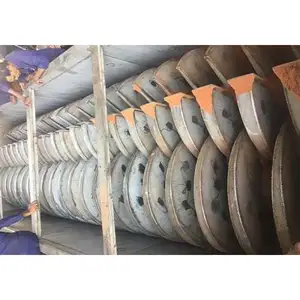



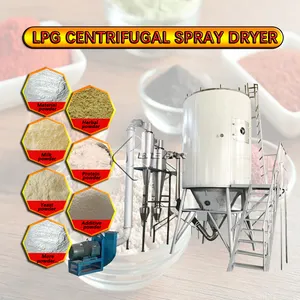





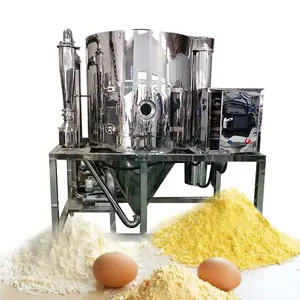






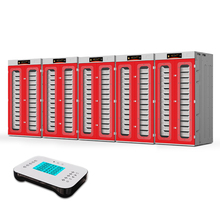
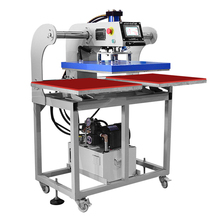
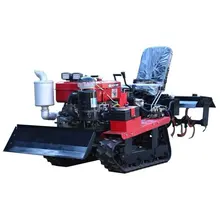




























 浙公网安备 33010002000092号
浙公网安备 33010002000092号 浙B2-20120091-4
浙B2-20120091-4